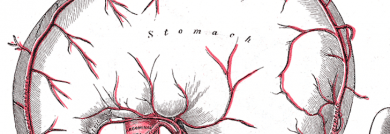
The use of proton pump inhibitors (PPIs), third- and fourth-generation cephalosporins, carbapenems, and piperacillin-tazobactam significantly increase the risk of hospital-onset Clostridium difficile infection (CDI), according to the results of a recent study.
The researchers conducted a multicenter retrospective cohort study involving patients treated at 1 of 150 hospitals between October 2015 and September 2016.
Overall, 4587 participants developed hospital-onset CDI, with the odds of developing an infection increasing 0.5% for each year of age. PPI use was shown to increase the risk of infection by 44%, and were also higher in patients receiving H2 antagonists (odds ratio [OR]= 1.132; 95% CI, 1.059-1.21), carbapenems (OR = 1.958; 95% CI, 1.701-2.254), third-generation cephalosporins (OR = 1.351; 95% CI, 1.251-1.46), fourth-generation cephalosporins (OR = 2.284; 95% CI, 2.02-2.583), metronidazole (OR = 1.253; 95% CI, 1.145-1.371), piperacillin-tazobactam (OR = 2.011; 95% CI, 1.841-2.195), or more than one antibiotic (OR = 1.650; 95% CI, 1.489-1.828).
However, patients who received tetracyclines, macrolides, or clindamycin had lower risk of developing hospital-onset CDI.
“These findings support appropriate prescribing of acid-suppression therapy and high-risk antibiotics,” the researchers concluded.
REFERENCE:
Watson T, Hickok J, Fraker S, et al. Evaluating the risk factors for hospital-onset Clostridium difficile infections in a large healthcare system [published online December 20, 2017]. Clin Infect Dis. https://doi.org/10.1093/cid/cix1112.